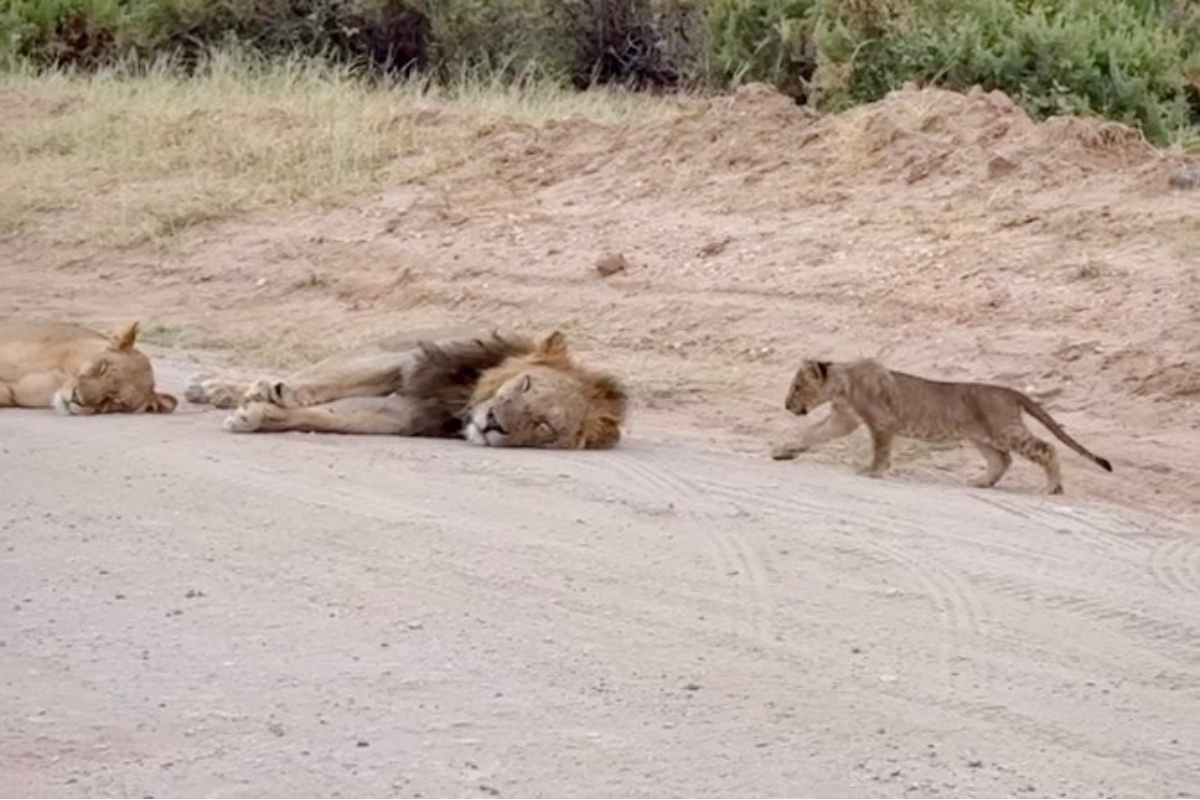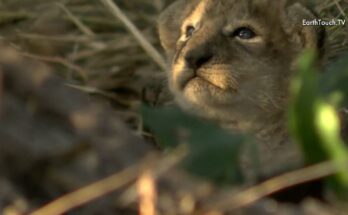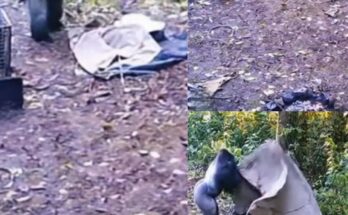
In the golden heart of Kenya’s Samburu National Reserve, the morning sun casts a warm glow over the savannah. The air is still, except for the soft rustle of grass as a playful lion cub creeps low to the ground. Its tiny paws move with exaggerated care, eyes fixed on the magnificent pair resting beneath a shady acacia tree — its parents, the pride’s dominant male and female. Oblivious to their mischievous offspring, they lounge in the dappled light, tails flicking lazily as they enjoy a rare moment of calm.
But peace never lasts long with a cub around. With a sudden burst of courage, the little lion launches itself forward, letting out what can only be described as a squeaky roar. It pounces onto its mother’s tail, biting down with all the ferocity its baby teeth can muster. Startled, the lioness lifts her head, then lets out a deep, rumbling purr — half amusement, half affection. The father opens one golden eye, pretending to be stern, before rolling onto his back in mock surrender. The cub, triumphant, bounces in circles, clearly delighted with its victory.
Nearby, a group of safari-goers can hardly contain their laughter. Cameras click rapidly, trying to capture the fleeting scene of innocence and joy. This is the wild at its most tender — not the fierce hunts or dramatic chases, but the small, heartwarming moments of family and play that define life in the bush.
As the cub finally collapses between its parents, the sun climbs higher, painting the landscape in hues of amber and gold. The Samburu Reserve breathes with life and warmth, a reminder that even in the kingdom of lions, love and laughter are as vital as strength and survival.


